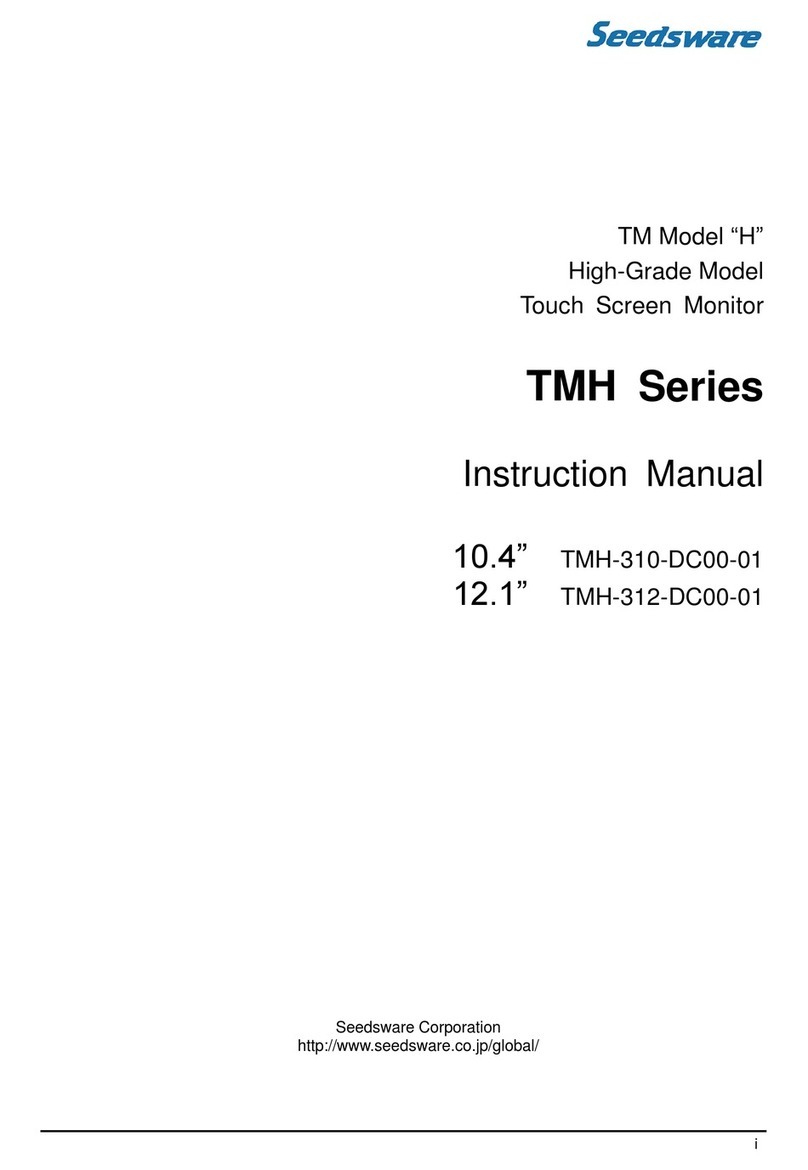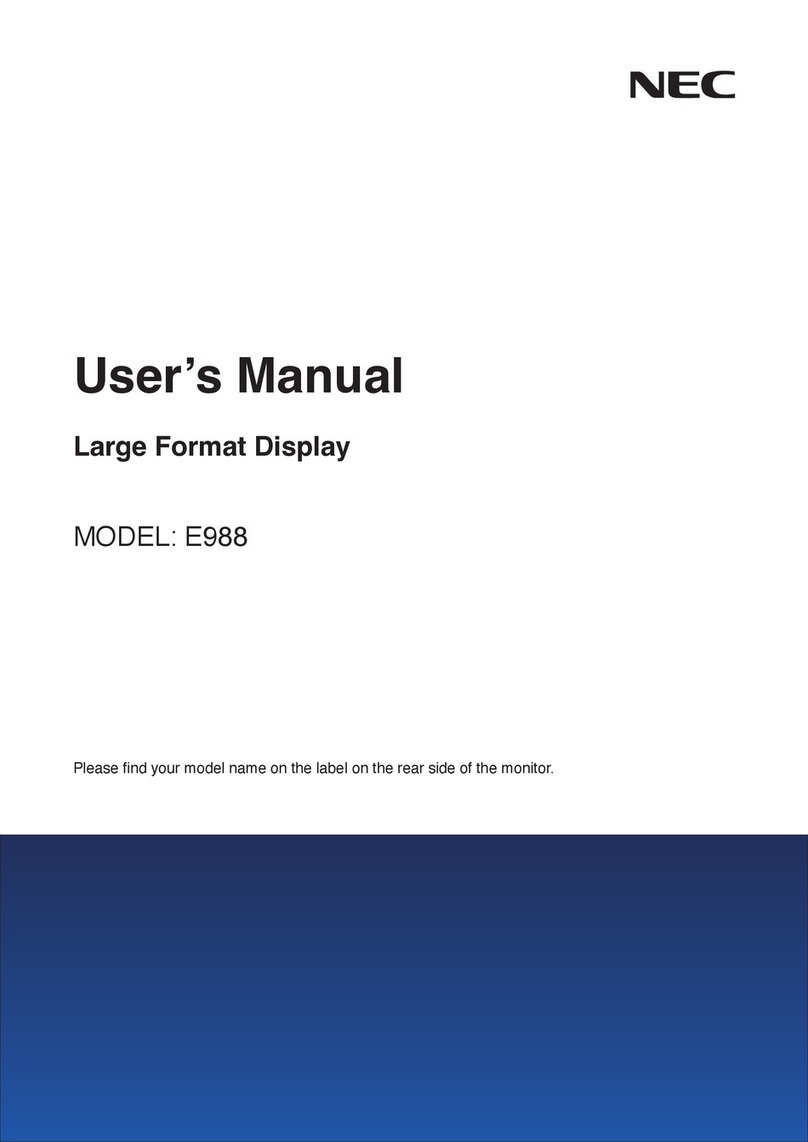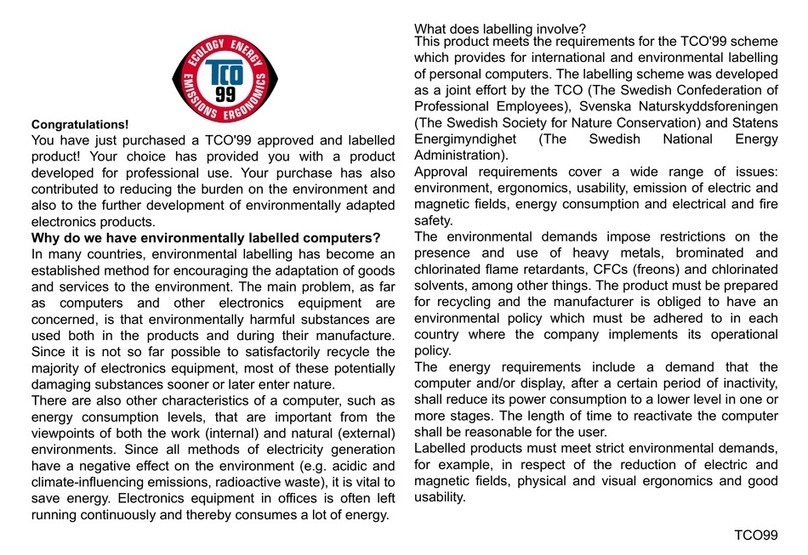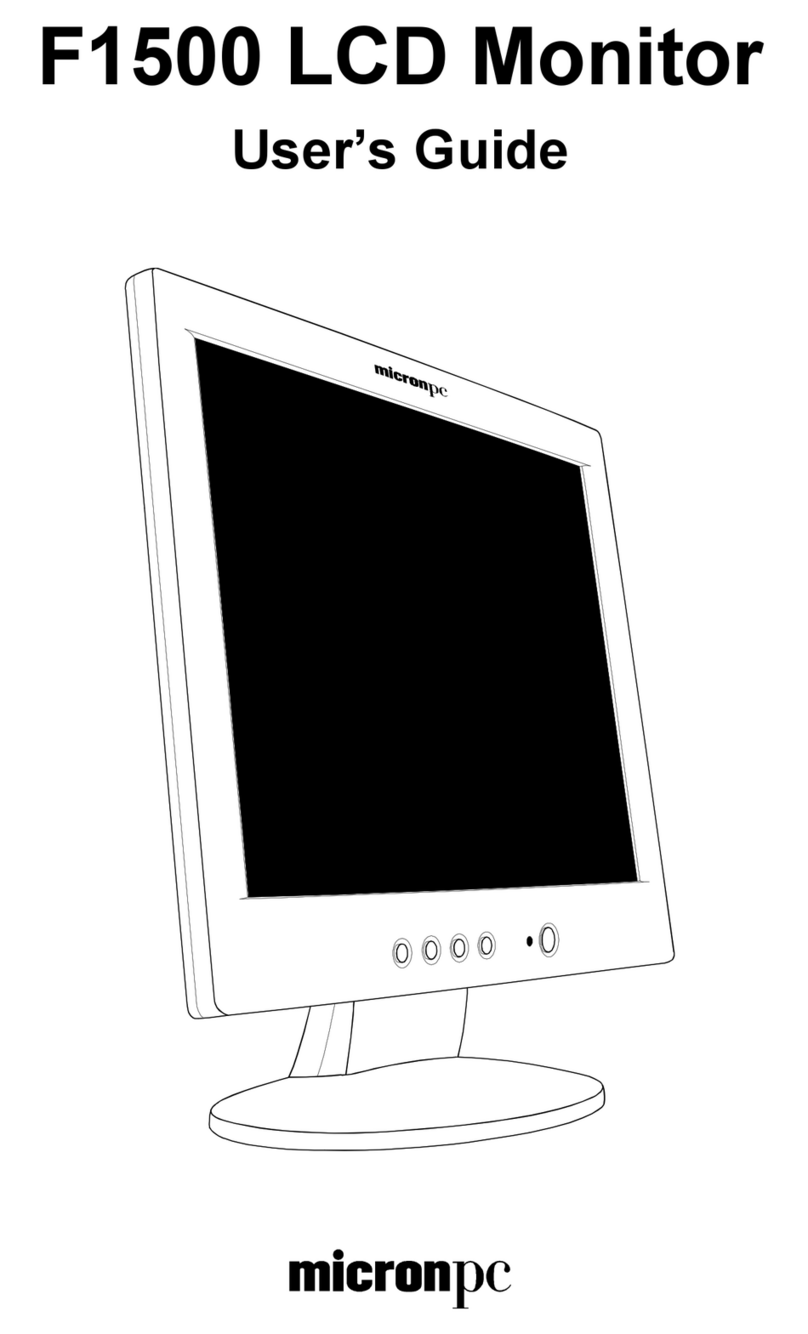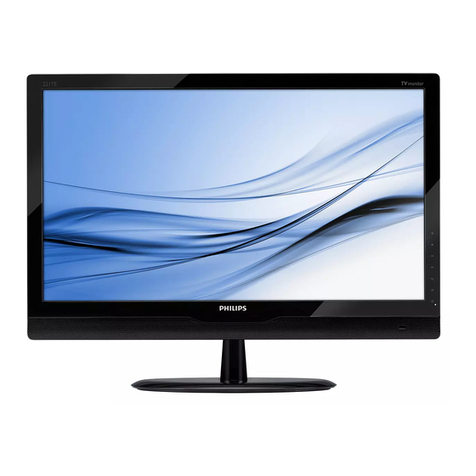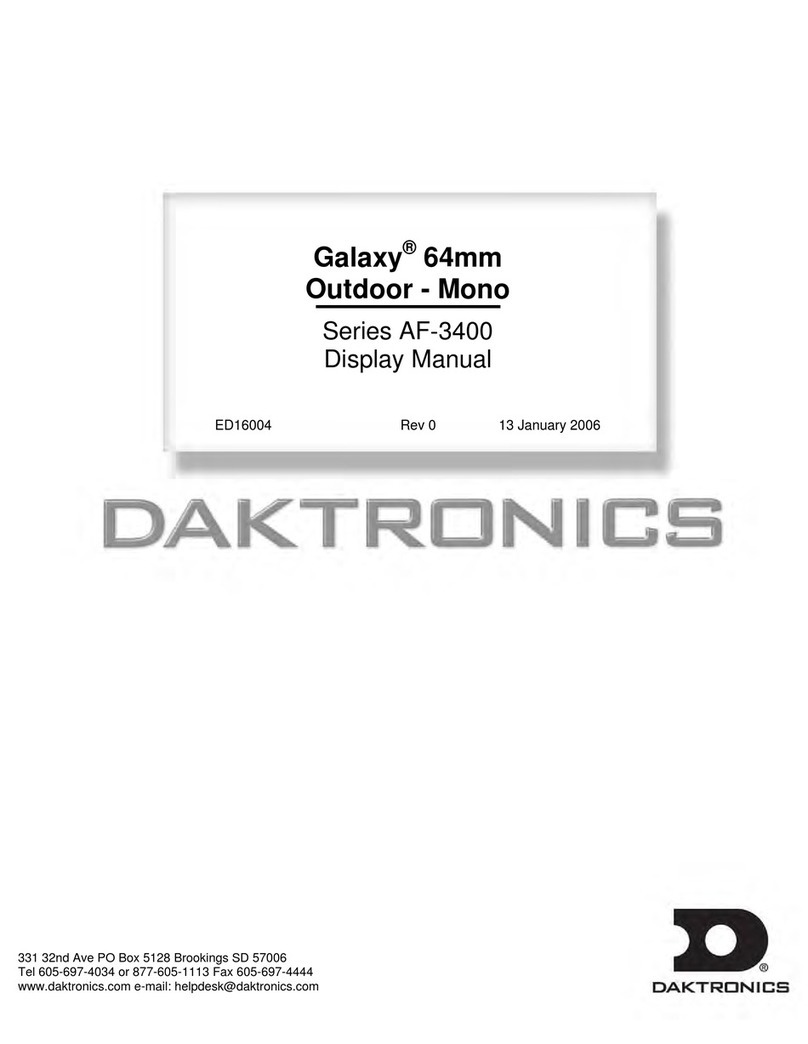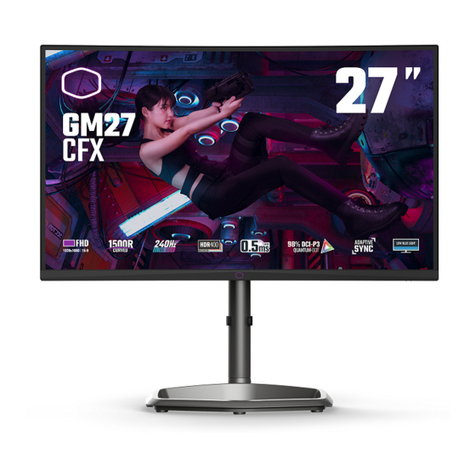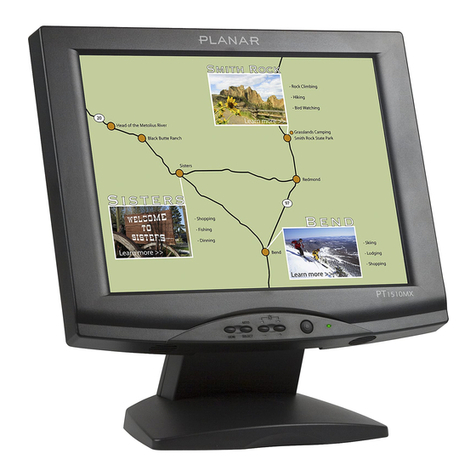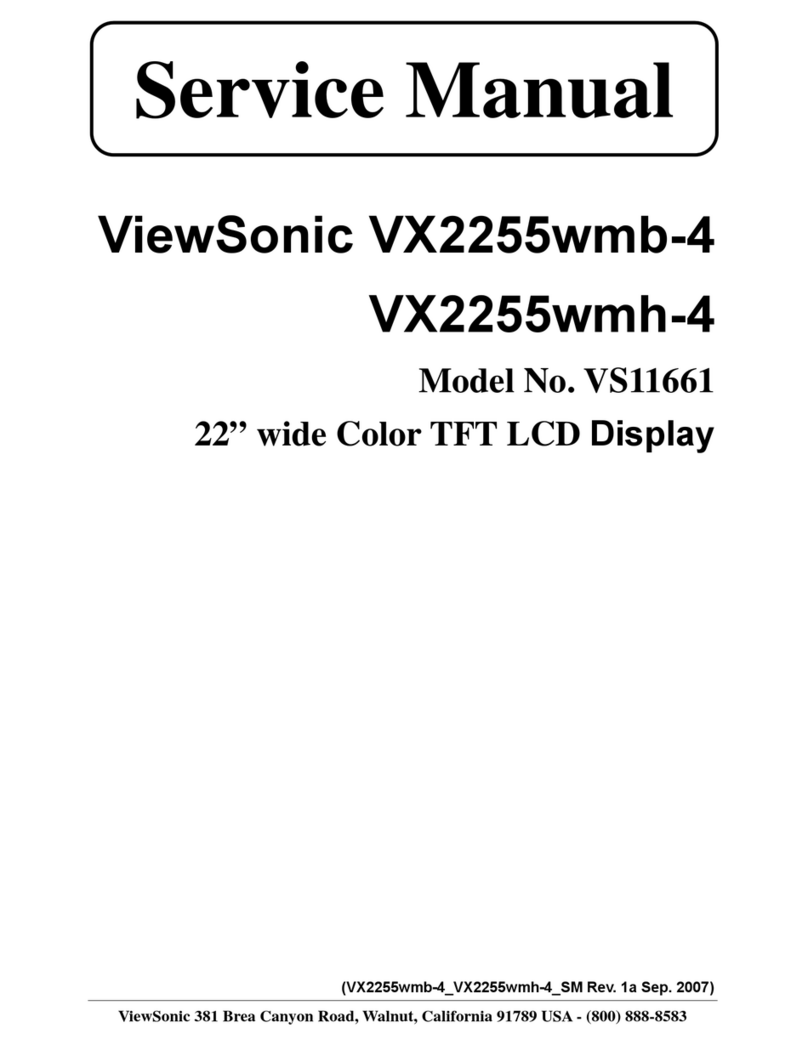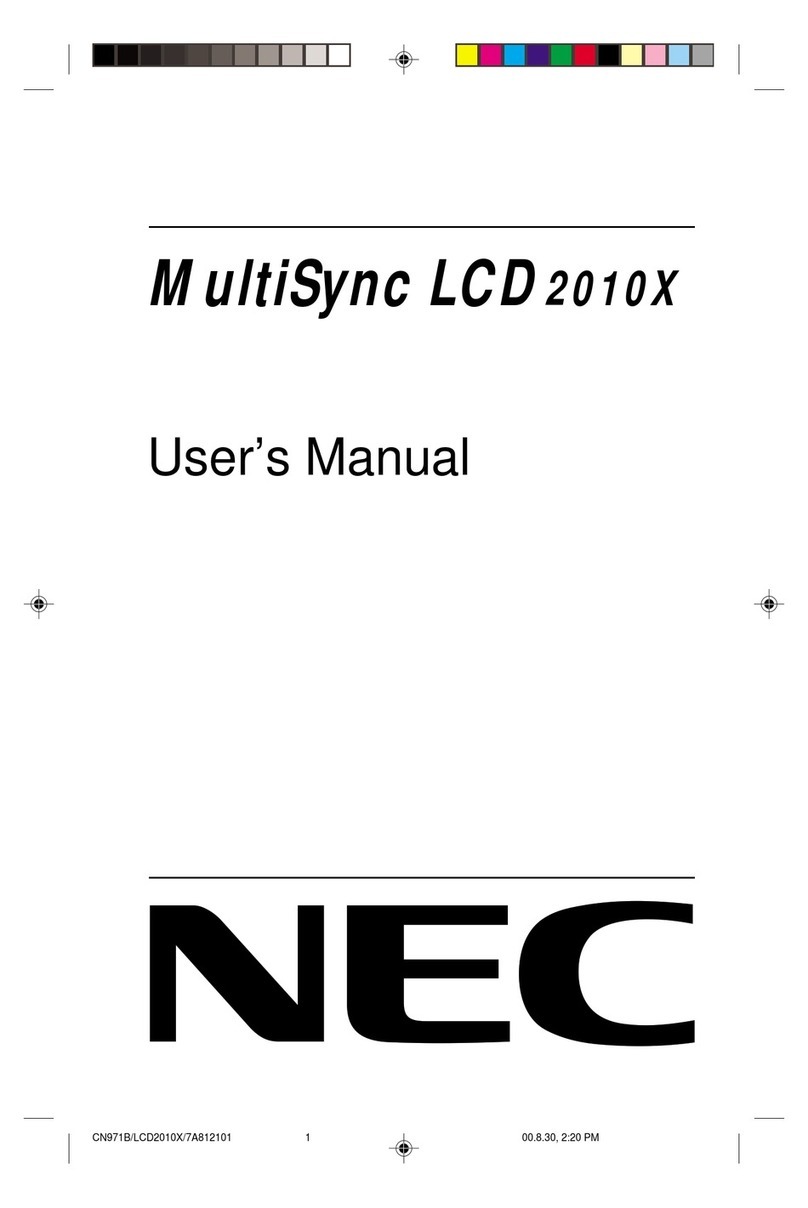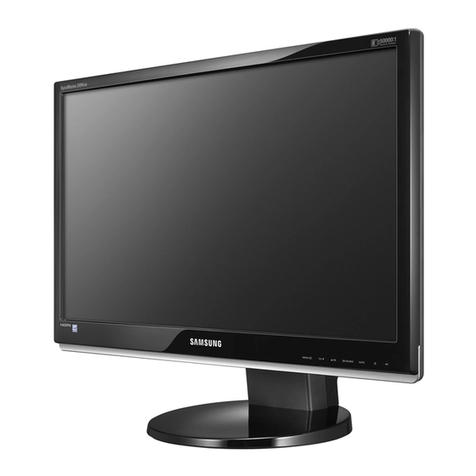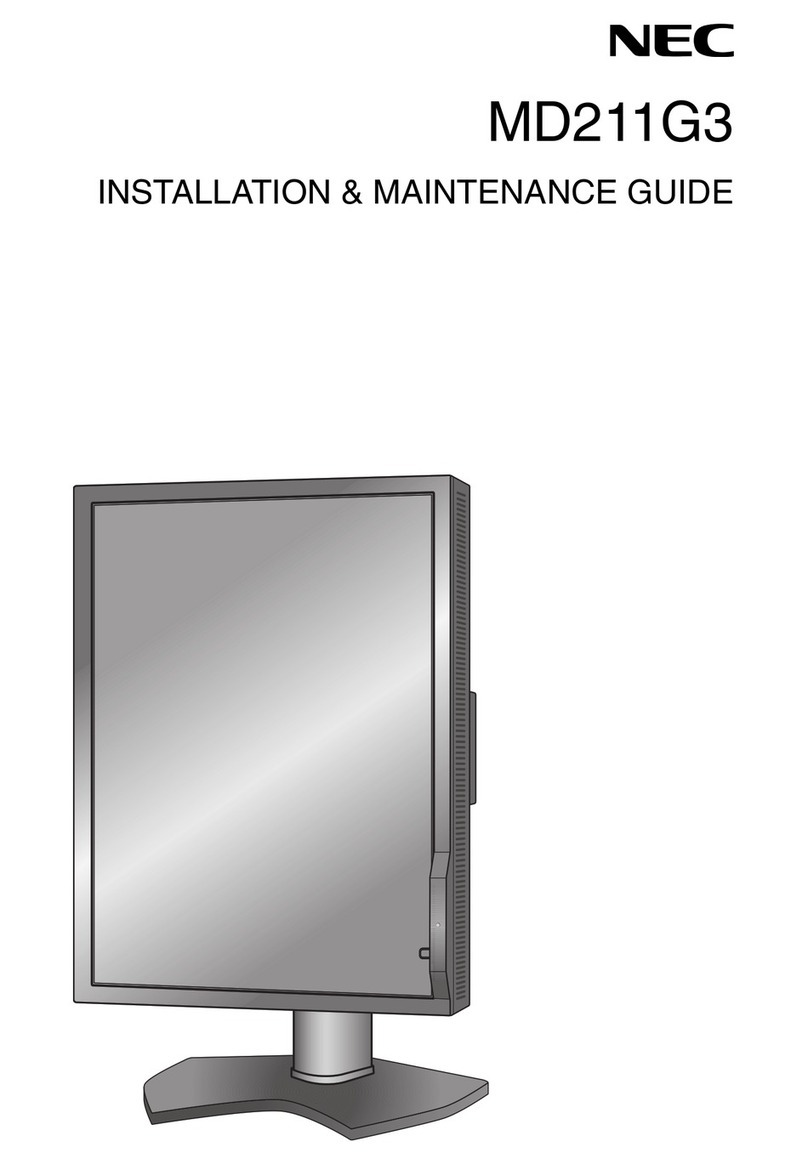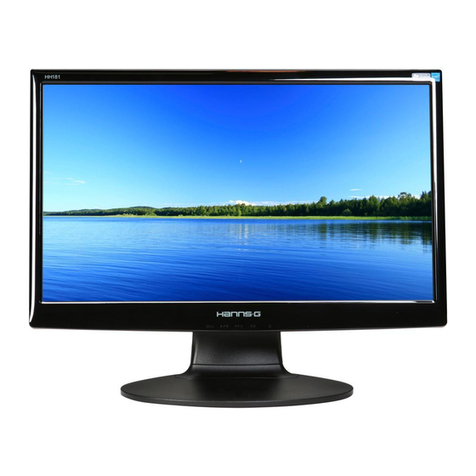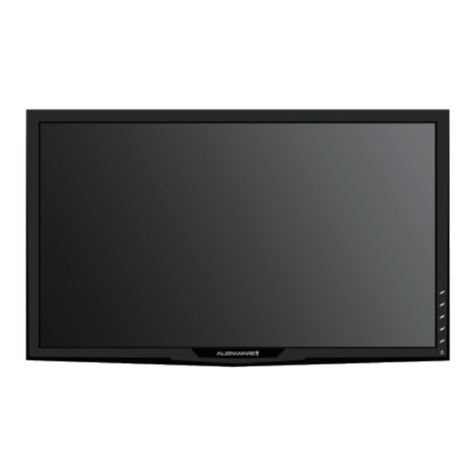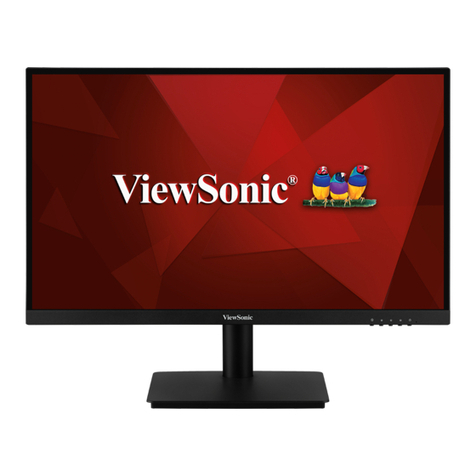Seedsware STM Series User manual

STM Series Instruction Manual i
Introduction
Thank you for purchasing Seedsware products
This manual describes the functions of the STM series.
Please read this manual carefully and use the product properly.
The product will be referred to as “STM” hereinafter.
Please note, specifications described in this manual are subject to change without prior notice.
Copyrights and Trademarks
■The copyright of this instruction manual is rightfully owned by Seedsware Corporation.
■Reproduction and/or duplication of the product and/or this manual, in any form is strictly
prohibited.
■Contents of this product and/or this manual are subject to change without prior notice.
■Although all efforts have been made to ensure the accuracy of this product and/or the
contents in this manual, should you notice any errors or have any questions, please contact
and notify us.
■We will not be held liable in any way for damages or losses, nor be held responsible for any
claims by a third party as a result of using this product.
■Other product and company names mentioned herein are trademarks or registered
trademarks of their respective owners。
Safety Precautions
Please go through and follow the below precautions before use.
Safety Symbols
Safety symbols are noted throughout this manual to ensure the proper use of the STM.
The indications and meaning of the symbols are as follows.
Warning
Indicates a procedure, condition, or statement which, if not strictly observed, could
result in severe personal injuries or death.
Caution
Indicates a procedure, condition, or statement which, if not strictly observed, could
result in severe personal injuries or property damage.
Indicates a procedure, condition, or statement that must not be done for correct use
of the product. (Prohibited)
Indicates a procedure, condition, or statement that should be strictly followed for
correct use of the product. (Mandatory)

STM Series Instruction Manual ii
Warnings
Warnings for Design
Designing switches that might cause human injuries and/or property damage on the
touchscreen is strictly prohibited. Unintended output signals due to malfunction of the main
unit and/or cables can lead to serious injuries. Design the system so that switches that
perform critical operations are equipped on devices other than the STM itself.
Designing safety related switches on the STM is prohibited. Switches related to safety, such
as emergency stop switches, should be installed on a different hardware.
Do not use this product as a critical warning device that may cause injuries, serious property
damage, or production stoppage. Critical warning indications and alert-related controls
should be structured on an independent and redundant hardware or mechanical interlocks.
The STM is not intended for use in applications that require extremely high reliability and
safety such as aircraft equipment, aerospace equipment, trunk line communication
equipment, nuclear power control equipment, and life sustaining medical equipment. It is not
intended for use in these applications.
When using the STM for purposes that concerns high reliability and safety in terms of
functions and accuracy such as transport equipment (trains, automobiles, ship, etc.), disaster
prevention and security equipment, various safety devices, medical equipment that does not
concern life sustaining, be sure to have safety features including redundancy and
malfunction prevention measures into the entire system which it will be incorporated.
Display will black out when the backlight goes out. If mistakenly operated in this condition, it
might result in improper operation. Do not design touch-switches that might cause human
injuries and material damages due to improper operation on the STM.
Warnings for Handling
Do not modify or disassemble the STM. Doing so may cause fire and /or electric shock.
Do not use around flammable gas. It may cause explosions.
Do not allow any kind of liquid, such as water, and metals to get inside of the product. It may
cause fire and/or electric shock.
In any abnormality such as smoke, unusual odor, or unusual noise is detected, disconnect
the power plug, and discontinue use. If use is continued, it may cause fire or electric shock.
Warnings for Wiring
For proper wiring and installation, please refer to the manual and specifications. Failure to
do so may cause fires and/or electric shocks
Before installing the power cable, make sure power is not being supplied from the power
source. Failure to do so may cause electrical shocks.
Do not use power voltage other than what is specified. Failure to do so may cause fires and/or
electric shocks.

STM Series Instruction Manual iii
Cautions
Cautions for Disposal
When disposing the product, please treat it as industrial waste.
Precautions for Safe Use
Do not press the display with strong pressure or hard objects. It may break the display and
cause injuries.
Please use this product within the specified ambient temperature and humidity range. If not
used properly within the specified range, it may cause malfunctions.
Do not press down on the display area with sharp objects such as mechanical pencils or
screw drivers. It may damage the display.
If the surface of the STM gets dirty, wipe with a dry, soft cloth damped in a neutral detergent
then wrung out tightly. Do not use thinner or organic solvents.
Avoid using the STM in areas where rapid temperature change that can cause condensation.
It may cause malfunctions.
In order to prevent product temperature from rising, avoid using in areas where heat can
build up. Also avoid storing or using in areas of high temperature.
Avoid storing or using the product in direct sulight, dusty areas, or in areas where it can be
exposed to oil fumes and/or water vapor.
Do not use or store all precision equipment including the STM in areas where it is subject to
shock or vibration.
Avoid using or storing in areas where gasified chemicals are diverged into the air or where
chemical adhereing to the product can occur.
When using power source with slow rise-time and fall-time, it may not operate properly. Be
sure to drop the voltage to 0V when turning the power back on after once turning the power
off. It may not boot correctly.
Handling of LCDs
1) The LCD display contains skin-irritating materials. If liquid materials flow out due to damage and comes
in contact with skin, wash the area under water for more than 15 minutes. If it gets in the eyes, wash
your eyes immediately under running water and consult a doctor.
2) Please note that The LCD display may show uneven brightness depending on the contents being
displayed. This is not a malfunction.
3) Then LCD display may have minute spots (black or bright). This is a basic characteristic of the LCD
display and not a malfunction
4) When the LCD display is viewed outside the specified view angel, the display color might seem to
change. Please note this is a basic characteristic of the LCD display and not a malfunction.
5) When displaying a same image for a long period of time, it may cause afterimages. Please note that
this is a basic characteristic of the LCD and not a malfunction.
In order to avoid afterimages, change the display image periodically and avoid displaying the same
image for a long period of time.

STM Series Instruction Manual iv
Handling of Projected Capacitive Touchscreens (TMG)
1) Changes in the surrounding environment and/or elements that change the electric field, such
as capacitors with large capacitance, power supply units, metals, and other materials with
high dielectric constants are near, it may affect the coordinate detection. Keep as much
distance as possible from those unstable elements mentioned above when designing.
2) Connect the FG (Frame GND) of the STM main unit to FG (Field GND). Touchscreen
operation may become unstable.
3) Touchscreen operation may become unstable depending on the installation environment due
to the characteristic of the touchscreen. For correct use, please perform calibration of the
sensor sensitivity of the touchscreen when installing the equipment. For details, please refer
to “4.4 Calibation”.
4) Although the touchscreen is covered with tempered glass, please be careful when handling
as it may break when struck by hard objects.
5) The touchscreen may cause malfunction if there are drops of water on the surface of the
touchscreen. Please wipe it dry before use.
6) Due to the characteristics of the touchscreen, touching slightly outside the display area may
be detected as the coordinates of the edge of the touchscreen. Please take this into
consideration when designing applications.
Handling of Analog Resistive Touchscreens (TMH)
1) Applications that require a point on the touchscreen to be pressed for a long time may cause
failures due to its structural features. Please be careful.
2) The touchscreen is made of surface film and tempered glass. There is a possibility of the
touchscreen becoming inoperable due to cracks and/or other damages to the surface film.
Also, the tempered glass can easily damage if scratched. Please handle the touchscreen so
it does not come in contact with hard objects.
3) Due to the characteristics of the touchscreen, touching slightly outside the display area may
be detected as the coordinates of the edge of the touchscreen. Please take this into
consideration when designing applications.
4) The coordinates of the touchscreen may shift over time or depending on the environment of
use.
If the coordinates shift, please perform calibration (coordinate correction). For details, please
refer to “4.4 Calibation”.
5) Due to the structure of the touchscreen, sealing material may be visible at the edge (upper
right corner when viewed from the front) of the touchscreen.
Please refer to the Shipping Standards for details. (Please contact our sales
representatives.)

STM Series Instruction Manual A
Table of Contents
1. Features ....................................................................................................................1
1.1 Features........................................................................................................................................... 2
1.2 Line-Up ............................................................................................................................................ 3
2. Product Configuration .............................................................................................4
2.1 Names and Functions of Each Parts ............................................................................................... 5
2.2 Options............................................................................................................................................. 6
2.3 Installing the STM ............................................................................................................................ 8
2.4 Wiring............................................................................................................................................. 10
3. OSD..........................................................................................................................14
3.1 OSD Menu (Factory Default Setting)............................................................................................. 15
4. Touchscreen Setting Tool......................................................................................16
4.1 System Requirements ................................................................................................................... 17
4.2 Installation...................................................................................................................................... 18
4.3 Setting............................................................................................................................................ 22
4.4 Calibration...................................................................................................................................... 27
5. Maintenance............................................................................................................30
5.1 Maintenance .................................................................................................................................. 31
6. Troubleshooting .....................................................................................................32
6.1 Display ........................................................................................................................................... 33
6.2 About the Touchscreen .................................................................................................................. 34
7. Others......................................................................................................................35
7.1 Warranty and Repair...................................................................................................................... 36
7.2 Production Discontinuance ............................................................................................................ 37
7.3 Inquiries ......................................................................................................................................... 38

1Features
STM Series Instruction Manual 2
1.1 Features
■Front surface a full flat design.
■Slim type chassis.
■Supports HDMI video signal as a series.
■USB3.0 Upstream Port with shock-resistant “Standard Type B” connector.
■A lineup of projected capacitive touchscreens: TMG Series
-Supports five-point touch
■A lineup of light weight resistive touchscreen: TMH Series
-Resistive type that supports gestures such as flick, pinch in/out, rotate)
■Can be operated with gloves.
*Some glove may not be compatible depending on the type and the environment in which
they are used.
■Supports DC Power input (12V).
The connector uses DC jack with a screw when used with a compatible DC plug, it will prevent
disconnection.
AC adaptor with screw-lock is available as option.
It can also be used with a regular DC plug (without a screw-lock).
AC adaptor without a screw-lock is also available as option.
■Long-life, high-luminance LCD for industrial equipment.
■The IPS type LCD provides a wide view angle and can be displayed as either portrait or
landscape mode.
■Mounting angle of the VESA Box can be changed (variable angle: 90degress) /
Improved routing flexibility of the interface cable.
■Adoption of VESA mounting standard (100 x 100mm).
■Can stand alone with the optional self-standing stand.
■“Anti-virus + Antibacterial film” is also available as option.

1Features
STM Series Instruction Manual 3
1.2 Line-Up
Model
Specification
LCD size
Touchscreen type
Video Input
USB (Host I/F)
TMG-156FH01-01
15.6 inch
wide
Projected capacitive
HDMI
USB3.0 Type-B
TMH-156FH01-01
15.6 inch
wide
Analog resistive※
HDMI
USB3.0 Type-B
※The analog resistive type touchscreen used in the STM enable light touch operations compared to the
analog resistive type in our other products.
It also supports gestures such as flick, pinch in/out, and rotate.
(Two-point touch operation is not available)

2Product Configuration
STM Series Instruction Manual 4
2. Product Configuration
Chapter Contents
2.1 Names and Functions of Each Parts .........................................................5
2.2 Options ......................................................................................................6
2.3 Installing the STM......................................................................................8
2.4 Wiring ......................................................................................................10

2Product Configuration
STM Series Instruction Manual 5
2.1 Names and Functions of Each Parts
TMG-156FH01-01,TMH-156FH01-01
Part
No
Name
Function
①
USB Interface
USB3.0 Standard Type-B Connector
②
Power Input
Input power. (12VDC±10%)
③
Image Input (Digital)
HDMI connector
④
FG Terminal
Connects to Field GND.
⑤
VESA Box
Can be rotated by customer
①
③
②
④
⑤

2Product Configuration
STM Series Instruction Manual 6
2.2 Options
“AC adaptor (with/without screw-lock)”, “Anti-virus/ Antibacterial film”, and “Self-standing stand”
are available as options.
2.2.1 AC Adaptor (with screw lock)
Model: ATS065T-P120B15210 (customized model)
Manufacturer: Toki Trading Company
・AC Adaptor 1 unit ・AC cord 1pc
Note: Warranty coverage: The AC adaptor is covered by the AC adaptor manufacturer’s
warranty.
Please prepare an AC power cord that conforms to the standards specified for the country
or region in which it will be used.
2.2.2 AC Adaptor (without screw lock)
Model: AKA-12050 (standard model)
Manufacturer: Aikoh Electronic Corporation
・AC Adaptor 1 unit ・AC cord 1pc
Note: Warranty coverage: The AC adaptor is covered by the AC adaptor manufacturer’s
warranty.
Please prepare an AC power cord that conforms to the standards specified for the country
or region in which it will be used.

2Product Configuration
STM Series Instruction Manual 7
2.2.3 Self-Standing Stand
Model: SWST-01-001
2.2.3.1. Items included
・Stand (arm) 1unit ・Stand (base) 1 unit
・VESA mounting screw 4pcs ・List of items included 1copy
2.2.3.2. Assembly Instruction
1) Remove the screw attached to the arm.
2) Put together the arm and the base.
3) Screw together with the screw removed at 1).
1pc screw for
assembly included.
1)
2)
3)
Complete

2Product Configuration
STM Series Instruction Manual 8
2.3 Installing the STM
2.3.1 Installing Conditions (Precautions)
•To install the STM, use the M4 screw holes (VESA Standard 100mmx 100mm) provided in
the VESA box.
•When installing using a commercially available arm or stand, be sure to select one that can
withstand the weight of the STM.
•Please be careful not to drop the product as it may cause human injury or damage to the
product.
•Make sure there is enough room for inserting and removing of cables when installing.
•Use the product within the specified ambient operating temperature and humidity.
•Please install so the touchscreen does not come in contact with metal.
•If metal should come near the touchscreen, be sure to leave a space of 2mm or more between
the touchscreen and metal, otherwise it may cause malfunctions.
2.3.2 Installing of Optional Stand
Use the M4 screws provided with the optional stand for installation.
Tightening torque is 0.7 to 0.8N-m.
Angle adjustment range is +90° to -5°.
If installed to our option stand “SWST-01-001”, the angle can be adjusted for easy viewing.
Installation Stand adjustment range
Diagram of when installed to SWST-01-001

2Product Configuration
STM Series Instruction Manual 9
2.3.3 Installing “VESA Standard”Arm
The STM can be installed to a commercially available arm and/or stand.
Parts to be used for installation shall meet the UL1678 standards.
Please refer to the manual of the arm for installation procedures.
Installing hole dimensions are as follows (VESA Standard 100mm x 100mm)
Use M4 screws with tightening torque of 0.7 to 0.8N-m
Please select screws so the penetration depth of the M4 screw is 8mm or less from the backside.
VESA Standard
VESA is the abbreviation for” Video Electronics Standards Association”, an industry organization that
establishes standards for computer displays.
VESA established SVGA standards and VL bus standards and standardized below 2 types of LCD
monitor installing dimensions as below.
●75mm×75mm pitch
●100mm×100mm pitch
Our STM complies with the VESA standard 100mm×100mm.

2Product Configuration
STM Series Instruction Manual 10
2.4 Wiring
Be sure no power is supplied when wiring and connecting to avoid the risk of electrical shocks.
Do not turn the power on until all connections have been made.
Prepare the cables to be used according to the specifications.
2.4.1 Wiring of Power Supply
■Compliant DC plug specifications
●DC Plug with screw lock
Outer diameter: Φ5.5mm, Inner diameter: Φ2.1mm, Screw lock: 5/16-32 UNEF-2B
Allowable voltage: 12V or more, Allowable current : 5A or more
unit: mm
●DC Plug without screw lock
Outer diameter: Φ5.5mm; Inner diameter: Φ2.1mm
Allowable voltage: 12V or more, Allowable current : 5A or more
unit: mm
■Precautions for wiring power supply
(1) Be sure to wire separately the power supply of the STM, input/output equipment, and the
power equipment.
(2) Do not bundle nor bring close together the main circuit line (high voltage, high current),
signal line, and power cable.
(3) Attach a ferrite core to the power cable if affected by noise.
(4) Connect a lightning surge absorber if necessary.
■Precautions for grounding
(1) FG should be dedicated grounding. “Installation should be D-class grounding, grounding
resistance of 100Ωor less.”
(2) SG (Signal Ground) and FG (Frame Ground) is connected internally inside the STM. When
connecting the connecting device and the SG, design the system so that there is no short
circuit loop.
(3) Use a grounding wire of 2mm2 or more. The grounding point should be near the STM at
shortest length. If ground wire becomes long, use a thick insulation wire when setting.
(4) The STM will be FG grounded if the VESA arm is grounded to FG because the VESA arm
surface is conductive.
*Shortest Value
*
*
*Recommended Value

2Product Configuration
STM Series Instruction Manual 11
2.4.2 Wiring Procedure
(1) You will need a “USB Cable” and a “Video Interface Cable” in order to connect to a computer.
Model
Image Interface Cable
USB Cable
TMG-156FH01-01
TMH-156FH01-01
HDMI Cable
USB3.0 or USB2.0
(2) Make sure that the STM and the computer to which it is connected are not powered.
(3) Connect the STM and the computer as show in in below diagram.
*Connect to the power supply last.
*Attaching a ferrite core to each cable may be effective against noise.
(4) Standard orientation of the STM is vertical display installation. Set the STM display
orientation to “portrait (opposite orientation)” in the computer setting.
(5) For TMH-156FH01-01, refer to “4.4.2 Resistive Touchscreen” and click the box in front of
“Use EEPROM” to register.
(6) Calibration is not necessary for the STM in the factory default state. In case of touch
coordinate misalignment or unstable touch operation, please refer to “4.4 Calibration” and
perform calibration.
(7) Resetting of the touch coordinate (rotation) of the touchscreen is not necessary. However,
if the touch coordinates are rotated, please refer to “4.3.4 Touch Coordinate Rotation” and
rotate the touch coordinates.
Computer
AC Power supply
Note: Connect last
注:最後に接続すること
USB Cable
HDMI Cable
FG (Field Ground)
AC Adaptor

2Product Configuration
STM Series Instruction Manual 12
2.4.3 VESA Box Rotation
The VESA box at shipment from the factory is oriented so the image interface is in the
longitudinal direction.
Video interface can be rotated and changed by the customer.
■Vesa box rotation
(1) Turn off the power of the main unit and disconnect any peripheral devices connected to the
STM.
(2) Place the main unit on a flat and stable surface, such as a desk, with the display side
facing down.
[Caution] Please be careful not to damage the display surface.
(3) Remove the 4 screws securing the VESA box.
[Caution] Please be careful not to drop the screw to avoid it from getting inside the main
unit or getting lost.
(4) Gently lift the VESA box about 1 to 2 cm.
[Caution] Lifting up the VESA box too high may cause disconnection or damage.
VESA Box
Securing screw
(4 locations)
Box side
Position mark
Unit side
Position mark

2Product Configuration
STM Series Instruction Manual 13
(5) Rotate the box clockwise 90degrees so that the position mark on the body side and the
position mark on the box side are aligned.
[Caution] Rotating more than 90degrees may cause disconnections or damages.
Attempting to remove the VESA box by force may cause disconnections or
damages.
(6) Gently place the VESA box over the main unit so that there is no space between the main
unit and the VESA box.
Screw in place in the four locations with the four screws removed from the VESA box
screw set.
(Installation torque: 0.7~0.8M-m)
[Caution] Make sure that the wires are not pinched between the box and the main unit.
If a screw gets lost, make sure it does not get inside the main unit.
If power is turned on with the screw inside, it may cause a malfunction.
(VESA box set screw: (+) pan head machine screw W-Sems diameter M4*8 NI
plated)
(7) After rotating is complete, turn on the main unit and set the computer display (landscape
view) and make sure the display is working correctly.
(8) If touch operation is performed and touch operation is unstable, perform calibration
referring to”4.4 Calibration.
(9) There is no need to reset the touch coordinates (rotation) of the touch screen. If the
touch coordinates are rotated, please refer to”4.3.4 Rotation of Touch Coordinates “to
rotate the coordinates.
[Caution] To return the interface of the VESA box from landscape direction to the shipping
state (downward), be sure to rotate counterclockwise direction the VESA box 90
degrees.
Rotating more the 90degrees may cause disconnection or damage to the wires.
Position mark on
box side
Position mark on
body side
VESA box set screw
(4 locations)
This manual suits for next models
2
Table of contents
Other Seedsware Monitor manuals




